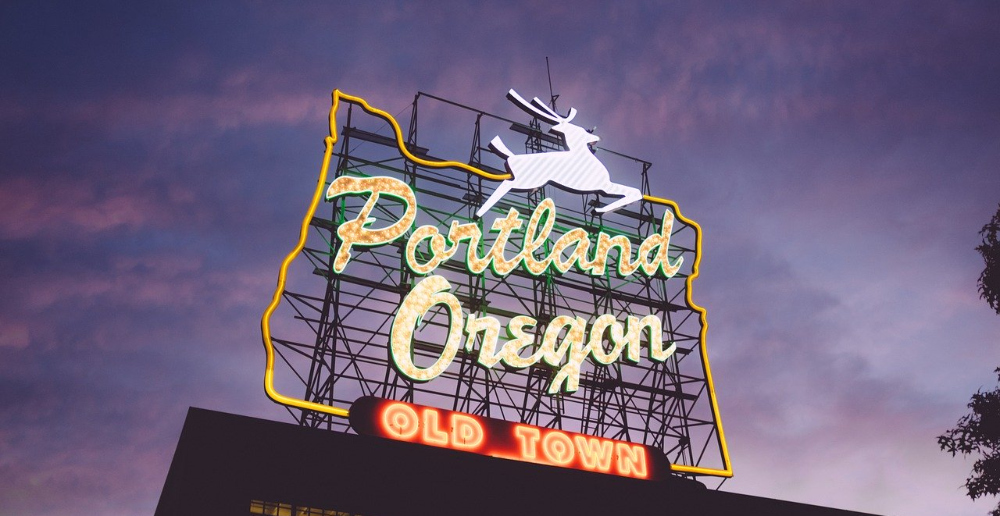
Portland voters have delivered a message to the protesters that attracted violence to the city in recent months. Tuesday’s voting has signaled a shift in city government that may be able to bridge the gap between police and their defenders and widespread support for police and social reform in the city.
The vast majority of the Black Lives Matter protests have been peaceful, but after local protestors return to their neighborhoods, violent young men emerge, sometimes with weapons, and incite mayhem and looting that winds up on national television. It is an irony, in Portland and nationally, that sincere and well-meaning legal protests generate cynical and nihilistic violence, often from actors who don’t live in the city under attack.
Mayor Ted Wheeler, much maligned for failure to rein in the violence, won re-election by an unconvincing margin, the first mayor to be re-elected since Vera Katz (1992-2004). And he appears to have a city council he can work with, despite (or because of) its striking lack of political experience.
Portland has an arcane weak-mayor form of government. The mayor is one of five members of the city council, and every initiative or major decision must win three votes. Council members each manage a city department, in a relatively rare “commission” form of governance. (By contrast, Seattle is a “strong-mayor” form of government. Cities such as Bellevue and Tacoma have a city-manager system, where a professional is hired by the council to run the city.) Traditionally the Portland mayor is in charge of the police bureau.

Wheeler, who previously served as Multnomah County chairman and Oregon state treasurer, was caught by the Black Lives Matter movement between his role as police commissioner and his role as political head of city government. By most measures, he failed to bridge the gap, and Portland became a poster child for right-wing candidates to bash across the nation. Video of the city’s riots was widely used by Republicans, and may have been a factor in the flipping of several congressional seats.
Wheeler won re-election with only 46.2 percent of the vote on Tuesday; his opponent, activist Sarah Iannarone, got 40.8 percent, and analysts believe that the 13 percent of write-in votes would have put Iannarone in office.
In the same election, Commissioner Chloe Eudaly was beaten by Mingus Mapps, a political science professor and first-time candidate. Eudaly, along with holdover Commissioner Joanne Hardesty, spearheaded the “defund the police” effort on the city council. After Tuesday’s results, Mapps joins Wheeler and Carmen Rubio (elected in the May Primary) and Dan Ryan as center-left liberals who are expected to support less-radical police reforms.
Commissioner Ryan has been a particular target of protestors. His home was attacked Thursday night, with some damage. Ryan, outgoing Commissioner Amanda Fritz, and Mayor Wheeler voted against a Hardesty-Eudaly effort to reallocate $18 million from the police budget. The Thursday crowd was small, about 60 Portland protestors, according to Willamette Week, and there was no report of personal violence.
Portland with 77 percent white population is one of the nation’s whitest cities, yet it will be majority-minority on the new city council; Rubio is Latinx, and Hardesty and Mapps are Black. The city remains among the most liberal in terms of social policy, but the mayor’s victory plus this shift on the council may signal a police-reform agenda that would not be radical.
Oregonians signaled in September that they disapprove of the protests, by a margin of 66-31 percent in polls. Results in the Portland metro area were similar to statewide responses. “A majority of Oregonians believe that the protests in Portland have been mostly violent. At the same time, just 29 percent feel that the Portland police have used too much force,” according to the polling by DHM Research, the state’s leading pollster. There is a polling gap between Portland and downstate Oregon on many issues, but in this survey topic, results are remarkably alike.
Although most reporting has found that the majority of the protests themselves are nonviolent, the violence that frequently has followed late at night becomes linked to the peaceful marches. Politicians taking advantage of that reality have seriously damaged the image of a city that not long ago was considered one of the most livable in the nation.
I spent the better part of my reporting career in Portland, but left in 1990, so I no longer know the city’s politicians. But family and friends in the city tell me it has changed in many respects, leading to the current unrest. But they are also quick to respond that their neighborhoods are safe and quiet and the violence is restricted to a small area downtown.
While this may be true, a city’s image is shaped by its core attractions, and for decades Portland has promoted its downtown core — notably Pioneer Courthouse Square and surrounding retail, its light-rail system, and the riverfront open space. The pandemic has reduced foot traffic, and the specter of shops boarded up to combat violence and looting is an off-putting image to present to the world.
Clearly, the results of the Portland election send a strong message to protestors: turn it down, remove the magnet you provide to violent people who don’t have your best interests in mind. The city council is malleable and inclined to police reform, but the voters of the city and also of the surrounding suburbs and the state in general are fearful of violence and will not support the defunding of police.
Continuation of the violence, in the face of this new reality, would fuel media as far away as Georgia, where January run-offs may determine control of the U.S. Senate. If protestors really want to advance their cause, they must stop offering bait to violence. It hurts deeply to see my old city as the poster boy on right-wing media.
Discover more from Post Alley
Subscribe to get the latest posts sent to your email.

People reading this need to forward this article to the members of the Seattle City Council.
A writer from Bellingham, making comment about a city he ‘once lived in’, 30 years ago, but has no connection to now….clearly states he has no knowledge of current city authorities, yet feels completely competent to report directly about them. It is offensive and condescending how many times he conflates the peaceful protestors with the violence….then by the end of his opinion piece all but calls for a shutdown of constitutionally guaranteed right to protest, by BLAMING protest in Portland with far-flung politics in GEORGIA and the rest of the U.S. “Stay in your homes and off the streets, or else….don’t speak out for racial equity and justice, or else…..”
Wow.
I would say you should keep your writing to that which you know up north….not that which you make wild and unsupported claims and assumptions about, in a place you no longer OCCUPY…..AND with such a straight white face.